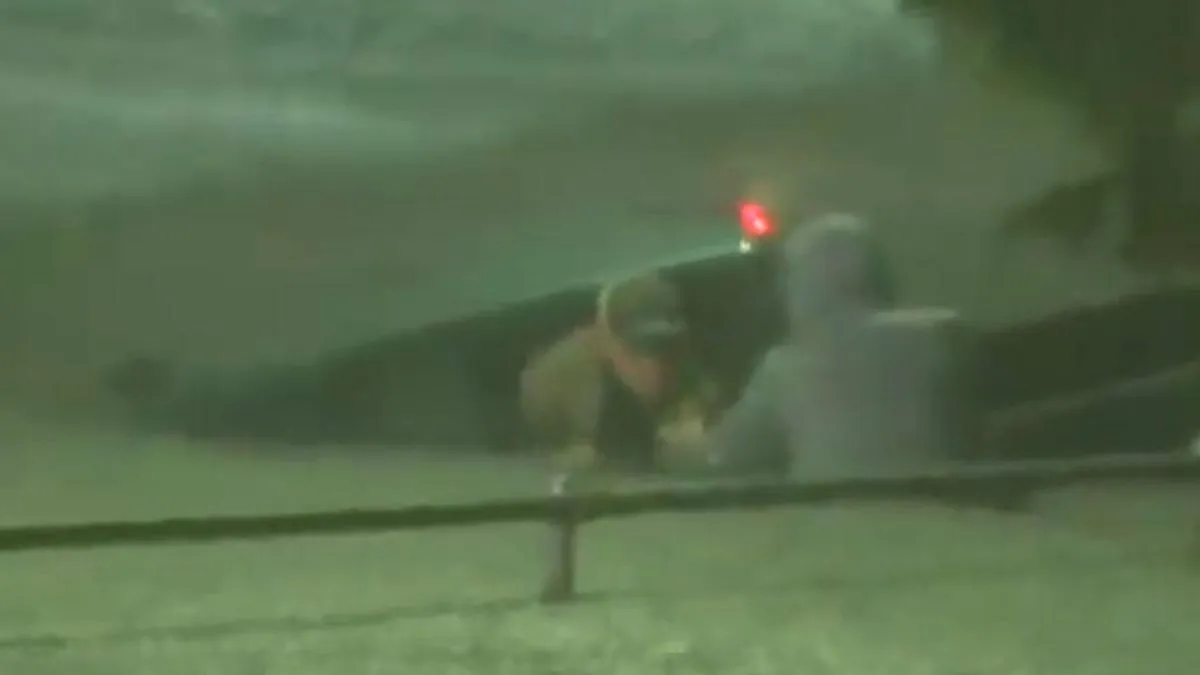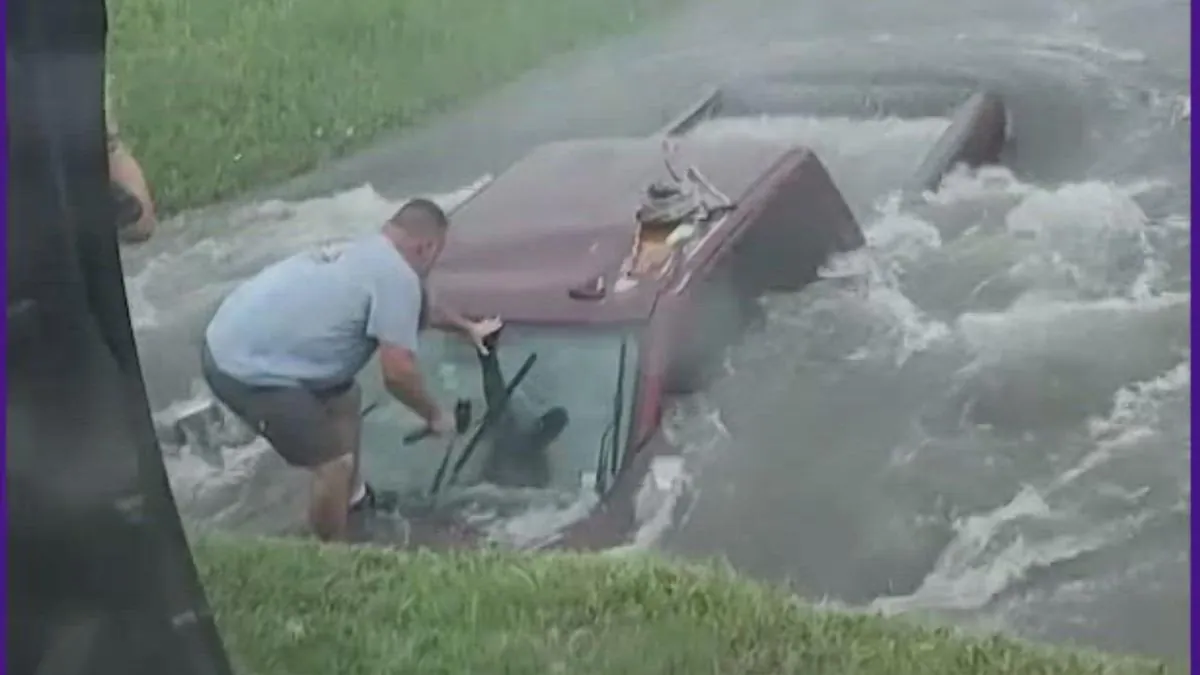Off-Duty Nurse's Swift Action Saves Man from Submerged Truck in New Orleans
During Hurricane Francine, an off-duty ER nurse in New Orleans rescued a man trapped in a flooded pickup truck. The nurse broke the truck's window with a hammer, pulling the driver to safety moments before the vehicle submerged.

In a display of quick thinking and bravery, an off-duty emergency room nurse rescued a man from a submerged pickup truck during Hurricane Francine in New Orleans on September 11, 2024. The incident highlights the ongoing vulnerability of the city to severe weather events, a challenge that has persisted despite significant improvements in emergency preparedness since Hurricane Katrina in 2005.
Miles Crawford, a 39-year-old nurse at University Medical Center, a Level 1 Trauma Center, noticed a pickup truck trapped in rising floodwaters near his residence. Recognizing the urgency of the situation, Crawford immediately sprang into action. He retrieved a hammer from his home and waded through waist-high water to reach the imperiled driver.
Upon arrival, Crawford observed that the water level had already reached the driver's head. Understanding the critical nature of the "Golden Hour" in emergency situations, he instructed the driver to move to the rear of the vehicle's cab, where the water was shallower. Using the hammer, Crawford shattered the back window and successfully extracted the driver from the flooding truck.

The rescue was completed just in time, as the pickup truck became fully submerged approximately ten minutes later. This rapid submersion underscores the swiftness with which floodwaters can rise during hurricanes, a phenomenon that climate change is expected to exacerbate in the coming years.
Crawford's swift response likely prevented a tragedy, as prolonged exposure to floodwaters can lead to hypothermia, even in warm climates like New Orleans. The nurse's actions exemplify the crucial role that off-duty medical professionals often play during natural disasters.
When interviewed the following day, Crawford modestly attributed his actions to his professional instincts. "It's just second nature, I guess, being a nurse, you just go in and get it done, right?" he stated. "I just had to get him out of there."
While Crawford sustained a minor hand injury during the rescue, he dismissed it as insignificant compared to the potential consequences of inaction. His selfless act serves as a testament to the resilience and community spirit that New Orleans has become known for in the face of recurring natural disasters.
As New Orleans continues to grapple with its geographical vulnerabilities, including its location below sea level and reliance on a complex system of levees and pumps, stories like Crawford's remind us of the human element in disaster response. While infrastructure improvements are crucial, it is often the quick thinking and courage of individuals that make the difference in life-threatening situations.
The incident also highlights the importance of community preparedness and the potential psychological impact of near-death experiences in floods. As climate change threatens to increase the frequency and intensity of hurricanes affecting New Orleans, the city's residents and emergency services must remain vigilant and ready to respond at a moment's notice.


































